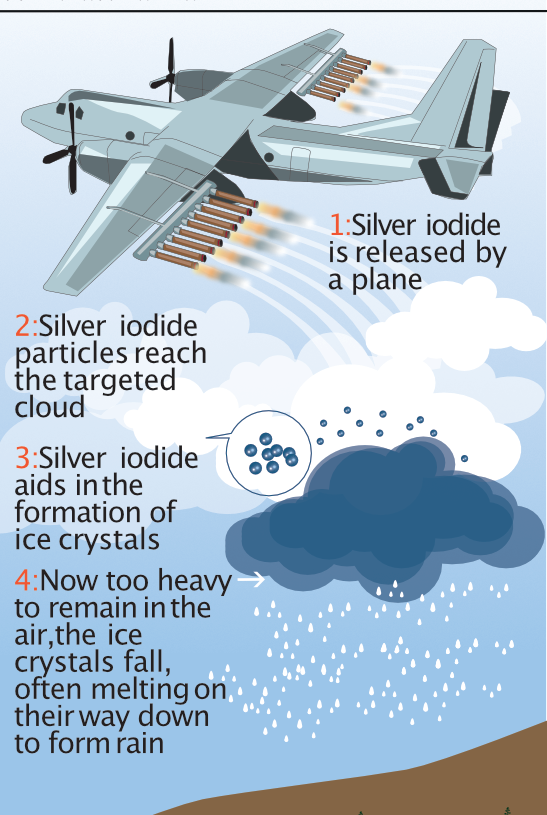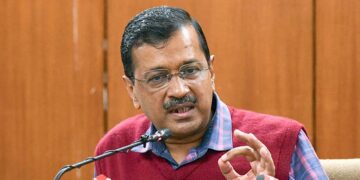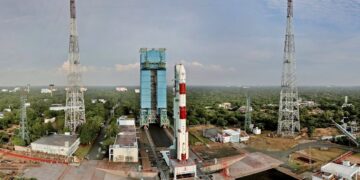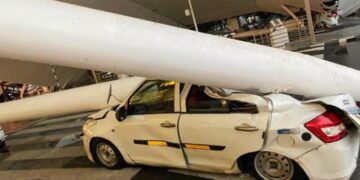Table of Contents
ToggleThe UAE’s National Centre of Meteorology to conduct cloud-seeding tests to research artificial rain

Does Dubai have artificial rain With temperatures soaring to as high as 50 degrees Celsius during the summer, the UAE’s water resources are under immense pressure, compounded by its heavy reliance on groundwater sources.
Does Dubai have artificial rain,In the United Arab Emirates (UAE), annual rainfall averages less than 200 millimetres. With temperatures soaring to as high as 50 degrees Celsius during the summer, the UAE’s water resources are under immense pressure, compounded by its heavy reliance on groundwater sources.

To combat this pressing issue, the UAE pioneered innovative solutions, one of which is generating artificial rain through cloud seeding, a form of weather modification aimed at enhancing precipitation. But, how does it work?
Dubai: Fed up with the scorching heat, Dubai has come up with a unique method to create artificial rain as temperatures surpass 50C. Footage of monsoon-like showers drenching roads and sparking flashes of lightning have gone viral on social media, generating interest among users. Interestingly, the city is now employing drone technology that ‘shocks’ clouds into producing rain. The rainmaking technology, known as ‘cloud seeding’, was put into use as summer temperatures surged past 50C in the United Arab Emirates city.
Also Read:https://livendtv.com/surya-tilak-caremony-at-ayodhya-ram-tilak/
Understanding Cloud Seeding
The process begins with weather forecasters at the NCM monitoring atmospheric conditions and identifying suitable clouds for seeding based on precipitation patterns.Cloud seeding is a technique that involves introducing “seeding agents” into clouds to stimulate the condensation process and trigger rainfall.

The UAE first tested cloud seeding in 1982. By the early 2000s, the Gulf nation’s artificial rain program had been bolstered by collaborative scientific and technical research with the National Center for Atmospheric Research (NCAR) in Colorado, USA, Witwatersrand University in South Africa, and NASA.
The UAE’s Rain Enhancement Program (UAEREP), managed by the Emirates’ National Centre of Meteorology (NCM), spearheads the program.

The scientists behind this program focused on analysing the physical and chemical characteristics of the UAE’s atmosphere, particularly aerosols and pollutants, and their influence on cloud formation. The aim was to identify an effective agent to stimulate cloud growth and ultimately augment rainfall.
The salt particles serve as nuclei around which water droplets condense, eventually growing heavy enough to fall as precipitation in the form of rain.
“The NCM has established a national network of 86 automatic weather stations (AWOS) for weather monitoring, six weather radars covering the entire UAE, and one upper air station.
“At present, the NCM operates four Beechcraft King Air C90 aircraft from Al Ain Airport equipped with the latest technologies and devices employed for cloud seeding and atmospheric research.”
Environmental Concerns
1.Despite the potential benefits of cloud seeding, concerns have been raised about its environmental impact and the safety of the seeding agents used.
2.Unlike some other countries’ cloud seeding programs that utilise silver iodide, a crystal-like material that has raised environmental concerns, the UAE’s program refrains from using harmful chemicals. Instead, it employs natural salts as seeding agents.
3.The NCM has developed its own seeding agent known as nano material, consisting of fine salt coated with titanium oxide.
4.This material is currently undergoing trials and experimentation to assess its effectiveness in enhancing precipitation.There have been other concerns over “tinkering” with nature.
5. the region experiencing exceptional weather conditions like storms and heavy rainfall, causing unprecedented floods, some have warned against meddling with the natural order of things, claiming that the floods are nature’s way of “pushing back”.
the weather manipulating method has largely been a success as cloud seeding contributed to the heavy rainfall seen across the country earlier this month. According to Gulf Today, both the NCM and Abu Dhabi Police issued warnings to the public, urging caution in the wake of poor visibility and driving conditions.
- Results of research may benefit Middle East and Central Asian countries in water-scarce environments.







































